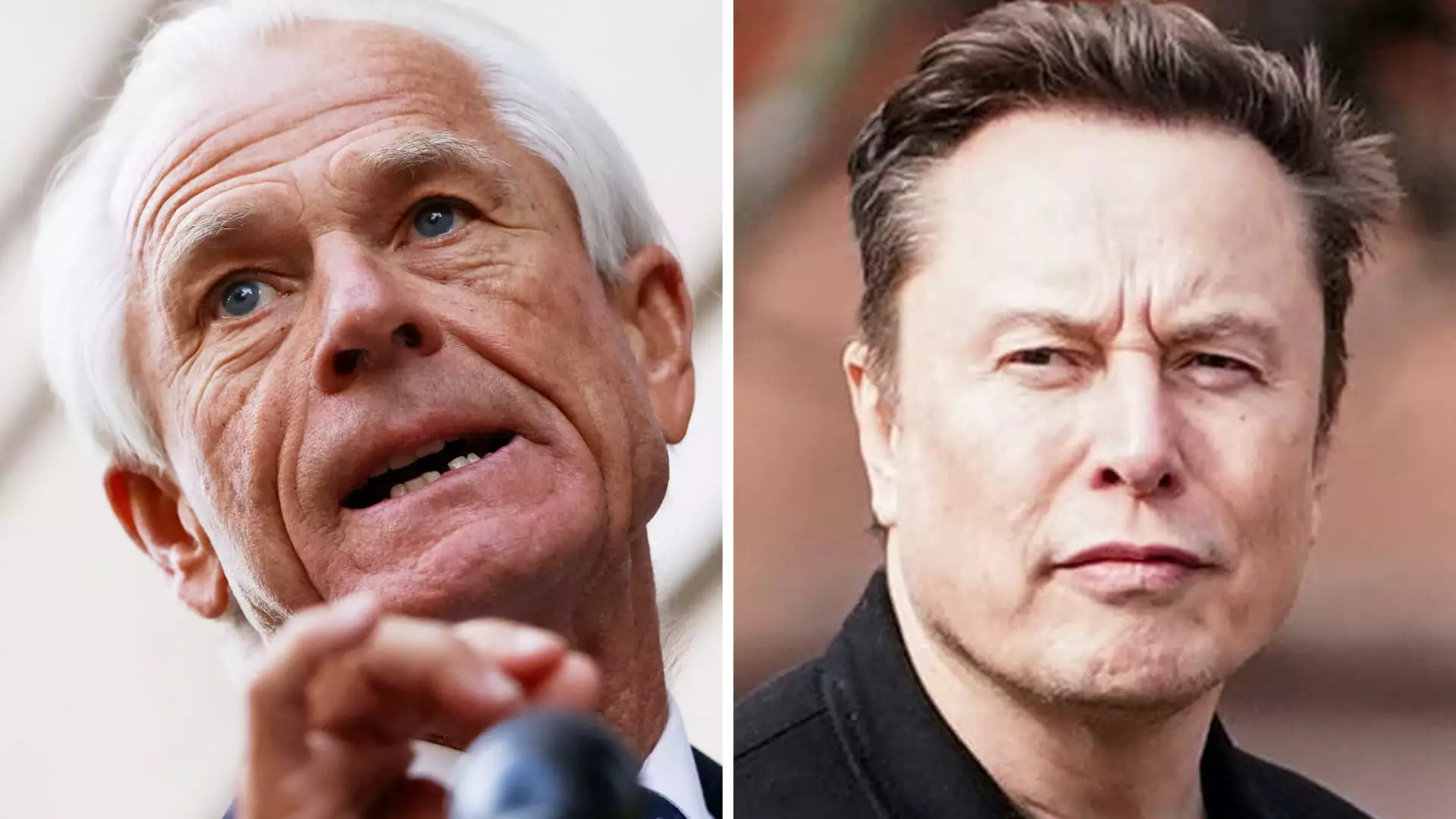In recent days, the political landscape has been punctuated by a rather peculiar spat between two key figures within President Trump’s advisory circle: Peter Navarro and Elon Musk. Navarro, a senior trade advisor, has taken the side of traditional economic nationalism, advocating for tariffs and local manufacturing. Conversely, Musk’s business perspective is rooted in the innovation of global supply chains and the integration of technology in manufacturing. The interactions between these two personalities provide not just a glimpse into the contentious world of trade policy but also reflect broader ideological rifts that challenge the cohesion of Trump’s administration.
The Clash of Perspectives
During an appearance on NBC’s “Meet the Press,” Navarro attempted to downplay tensions with Musk after Musk famously referred to him as a “moron.” The television host’s attempt to stoke the flames of conflict provoked Navarro’s defiant, light-hearted dismissal: “I’ve been called worse.” Yet, beneath this playful banter lies a serious ideological warfare—at the heart of which is the fundamental disagreement over the future of American manufacturing.
Navarro’s beliefs revolve around an America-first trade policy, advocating for jobs and manufacturing processes that remain within the nation’s borders, while Musk’s vision incorporates an expansive view, prioritizing efficiency and the technological revolution that transcends traditional manufacturing paradigms. When Navarro criticized Musk for being a mere “car assembler,” it was as though he was framing the conversation in a way that champions the old-school job creation model. However, that perspective runs the risk of suffocating the innovation that comes with new economic frameworks.
The Tariff Dilemma
Musk’s insistence on reducing barriers to trade contrasts sharply with Navarro’s steadfast support of Trump’s tariffs. As each piece of the puzzle falls into place, it becomes increasingly clear that the trade debate in the U.S. is anything but straightforward. It’s about balancing the urgent need for Middle America manufacturing—with its old-world jobs and communities—and an emerging digital economy that allows for more efficient global production practices.
In navigating these treacherous waters, Navarro insists that American values and labor must remain the cornerstone of policy. His comments on preferring to manufacture tires in Akron and engines in Michigan reflect a nostalgic connection to America’s industrial heartland, while simultaneously overlooking the economic realities dictated by a globalized market. Meanwhile, Musk’s notion of a “zero tariff situation” with Europe exhibits a forward-thinking view that aims to minimize friction in trade, thereby promoting growth and fostering innovation without the artificial constraints of tariffs.
Government Efficiency vs. Economic Realities
Adding another layer of complexity is the Trump administration’s broader push for government efficiency—an initiative Musk is credited with advancing. Navarro praised Musk’s work in identifying “waste, fraud, and abuse” within federal operations. Here lies yet another point of divergence: while Musk’s actions aim to streamline resources in government, Navarro appears rooted in an industrial ideology that longs for an era when blue-collar manufacturing was king.
This duality of thought underscores the tension between traditional economic roles and the evolving nature of globalization. Would Navarro’s policies effectively safeguard American jobs, or would they ultimately hinder the country’s competitive edge? Can the government really reduce inefficiencies while simultaneously reviving American manufacturing without suffocating innovation? As Navarro and Musk traded barbs, those broader questions loomed, revealing the myriad uncertainties surrounding trade in contemporary America.
Concluding Insights
The discord between Navarro and Musk is not merely personal; it reflects an ongoing struggle within the U.S. political landscape. As figures from diverse sectors grapple with the implications of trade policies, clarity in direction may further erode. The juxtaposition of Navarro’s protectionism and Musk’s advocacy for liberal trade is emblematic of a much larger ideological debate—one that will define the framework of American economic policy for years to come. In this crucial hour, as both men influence the fabric of future trade and economic approaches, the question arises: which path will America ultimately choose?


Leave a Reply